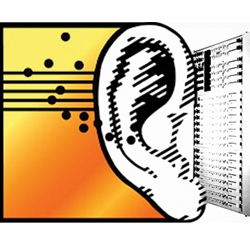
What Is Right
As we seek to “maximize our accurate discernment and understanding,” we use our ears as a measurement tool—objectively as well as subjectively—to analyze what is right and what is wrong in the sound. This analysis can direct us to make the proper adjustments.
Personally, I don’t possess “golden ears,” the high-level ability to discern and identify, say, octave bands by center frequency. As I mentioned earlier, I also can’t play my electric bass “by ear.”
However, one of my long-term goals has been to develop critical listening audio and musical skills. This quest dates back to 1979 when I first started playing guitar and began mixing live events (worship services and local solo performers), and has continued since 1997 when I switched to playing electric bass.
Similar to a guitar player in search of “ultimate tone,” my ear-training quest has been a long journey involving the study of many books, magazine articles, CDs, computer programs, Internet material, and even completion of two college-level ear-training courses in hopes of being better able to both play “by ear” and hear audio with “golden ears” skill.
My quest has recently become sharply focused, and on parallel paths. First, I’m course for two very motivated students, combining training in critical listening skills, auditory perception concepts, audio mixing skills, engineering science and math, and DSP computer projects in order to blend the art, science and practice of listening to audio.
Second, I’m using two computer programs to develop my electric bass “playing by ear” skills. (For the record, these programs are Guitar and Bass Trainer, and Absolute Fretboard Knowledge.)
I’ll be reporting the results of the course soon in a follow-up article. For those interested a sneak peak, we’re used an EAR Q Reference Hearing Analyzer to establish a baseline reference and the Golden Ears Audio Ear-Training Course for the actual training.
Hopefully through careful study and observation, we’ll all learn something truly useful along the way.
Mauro J. Caputi is an associate professor of electrical engineering at Hofstra University, Long Island, New York and has been involved in live performance and production audio for over 25 years.
